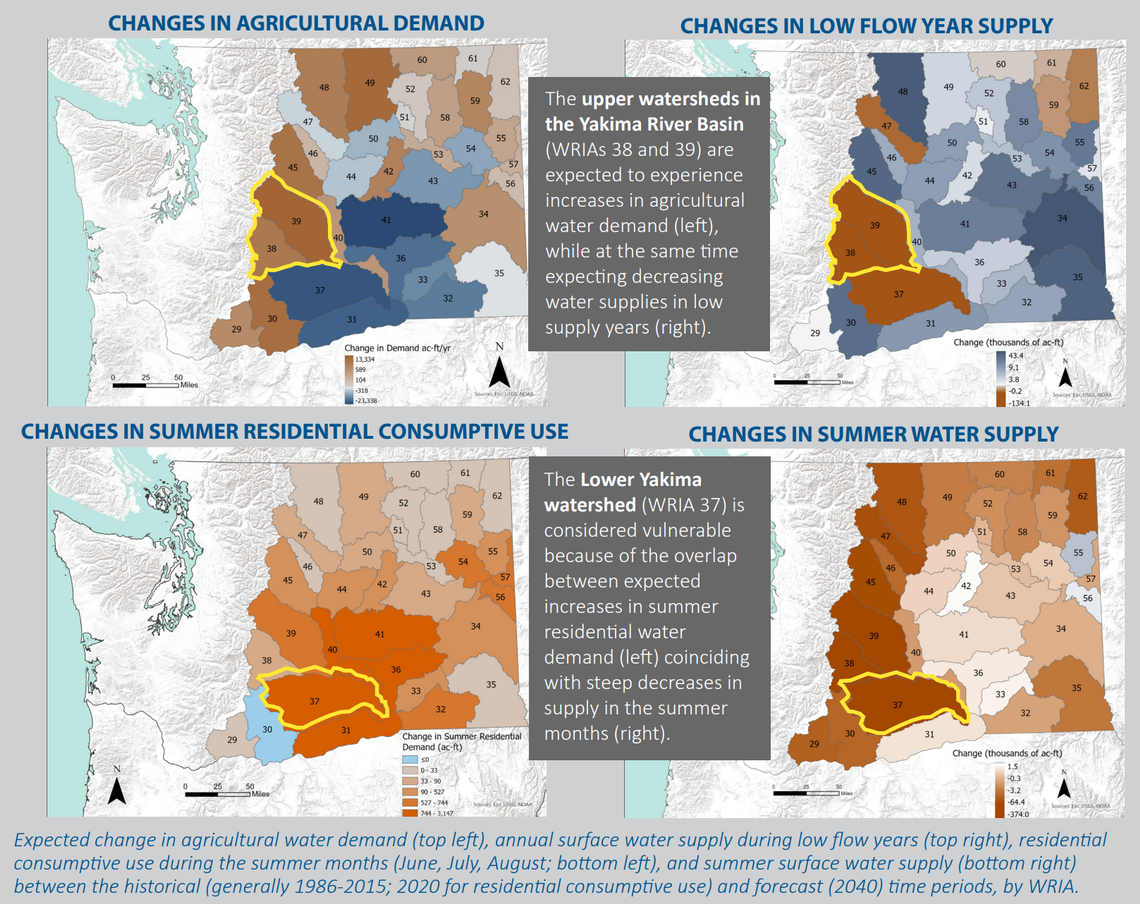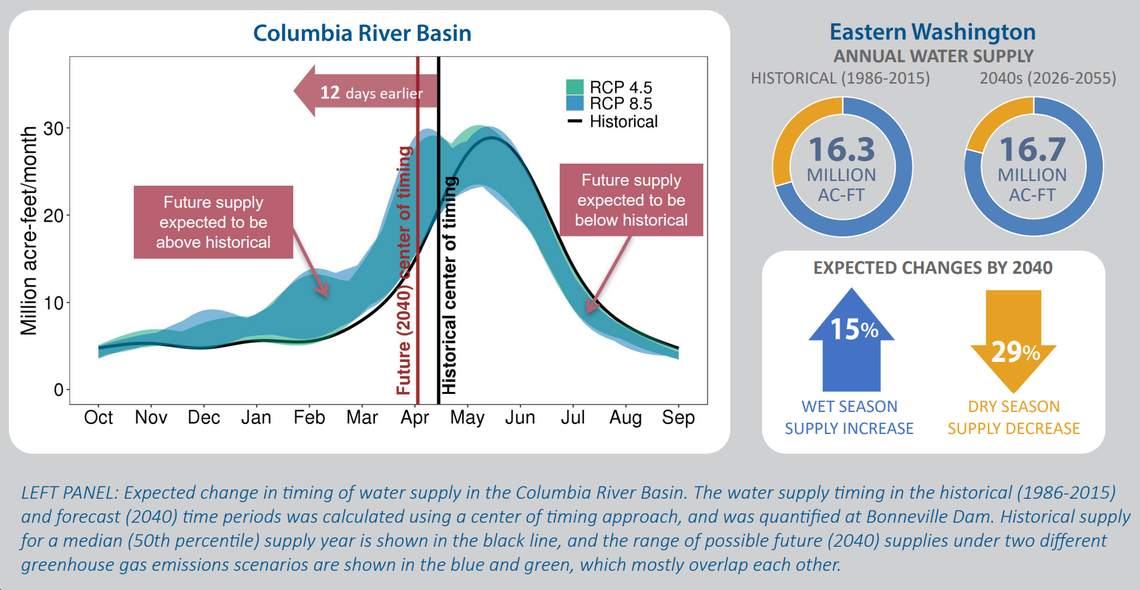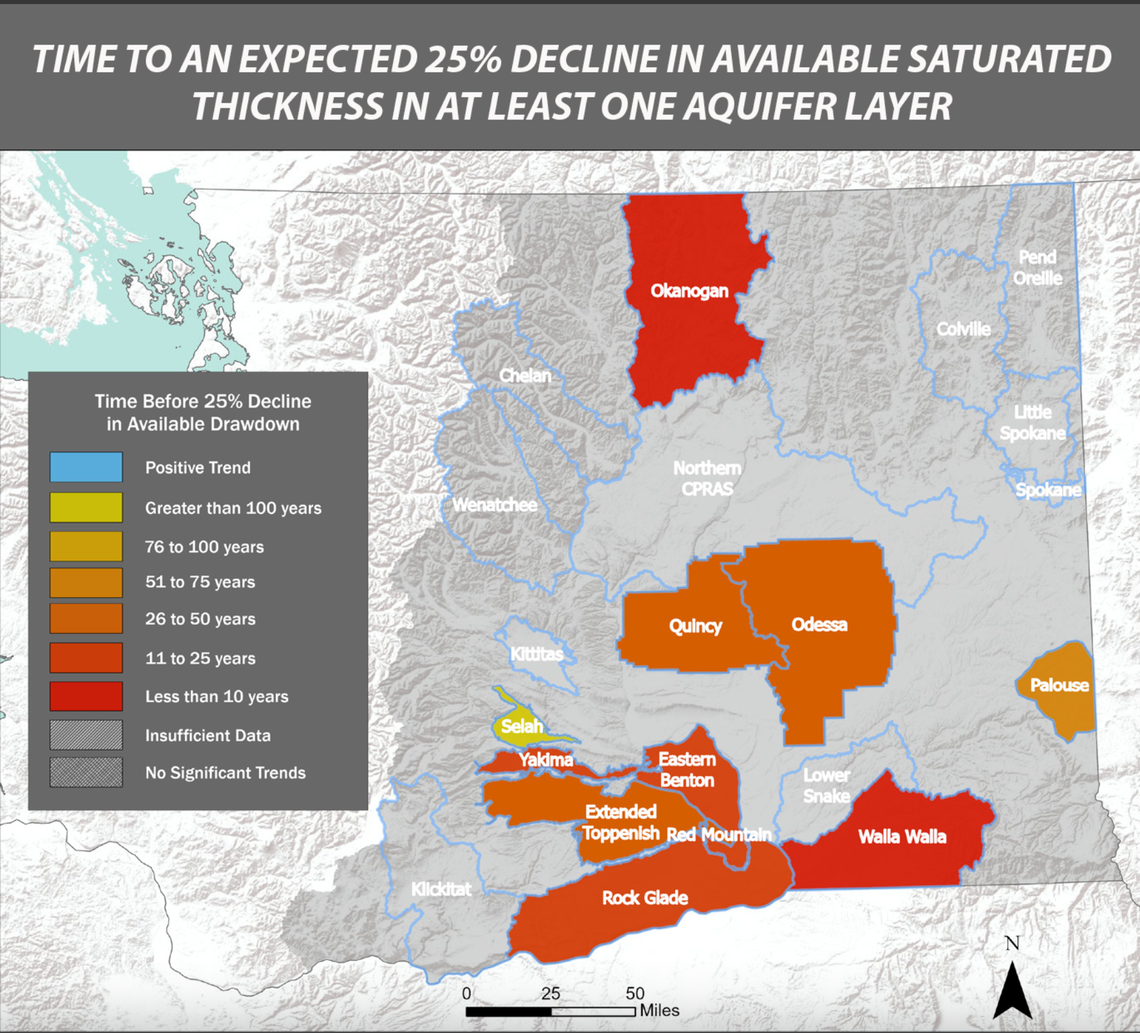Water shortages in E. Washington will happen in our lifetime, climate change to blame
A new long-term forecast has predicted that shifts in river flow and reduced snowpacks due to climate change over the next 20 years will result in drier summers and falls for eastern Washington.
The report, conducted by the Washington Department of Ecology, Washington State University, and the State of Washington Water Research Center, looks at how trends in population growth along with a decline in groundwater levels could produce a water shortage in the latter half of the year.
Shortages will persist throughout eastern Washington, but the report focused specifically on the Yakima River Basin, Lower Yakima watershed and the Columbia River.
“Managing water supplies and meeting the needs of the environment, agriculture industry and the growing communities of Eastern Washington will only grow more challenging in the decades ahead,” Tom Tebb, director of Ecology’s Office of Columbia River, stated in a Department of Ecology press release.
Why will there be a water shortage?
The Yakima River Basin in central Washington is an area of particular concern in the study.
By 2040, ecologists expect the region to experience increased agricultural water demand yet decreased water supply.
They also expect the lower Yakima watershed — the region that channels water toward the basin — to suffer due to an increase in residential water demand and a decrease in water supply during the summer months.

But it’s not just agriculture and population growth that will cause a strain on water demand.
Climate change is expected to result in higher temperatures and warmer and wetter winters in Washington, resulting in more rain, less snow, and a decrease in snowpack in the mountains.
Snowpack is snow on the ground in the mountains that persists even when warmer weather moves in, eventually melting later in the year and providing water to lower elevations.
With less snow and warmer temperatures, the snowpack is expected to melt earlier in the year, causing drier summers and falls.
Earlier watersheds will result in a 15% increase in water availability during the wet season but a 29% decrease in the dry season. The Columbia River Basin could see a 12-day shift forward in surface water supplies by 2040.

Impacts on Tri-City area
The Tri-Cities region sits on the cusps of the Walla Walla and Rock-Glade groundwater subareas, which could see a 25% decrease in water available in less than 10 years.

“Each watershed in eastern Washington faces unique challenges,” Jennifer Adam, forecast project director and professor of civil and environmental engineering at Washington State University, said in the Ecology press release.
“Some watersheds are more vulnerable to expected changes in the timing or availability of water supply, combined with changes in out-of-stream demands,” she continued.
The unique challenge for the Tri-Cities area is the nearby aquifers have a shallow available saturated thickness — the difference in elevation between the bedrock and water table. The saturated thickness of the Walla Walla subarea is only approximately 40 feet, which is dwarfed in comparison to other subareas nationwide that can reach as deep as 1,200 feet.
The Rock-Glade subarea is also expected to see an increase in summer residential water usage, agricultural demand by 6% compared to today, and an earlier center of mass for water demand by four days.
